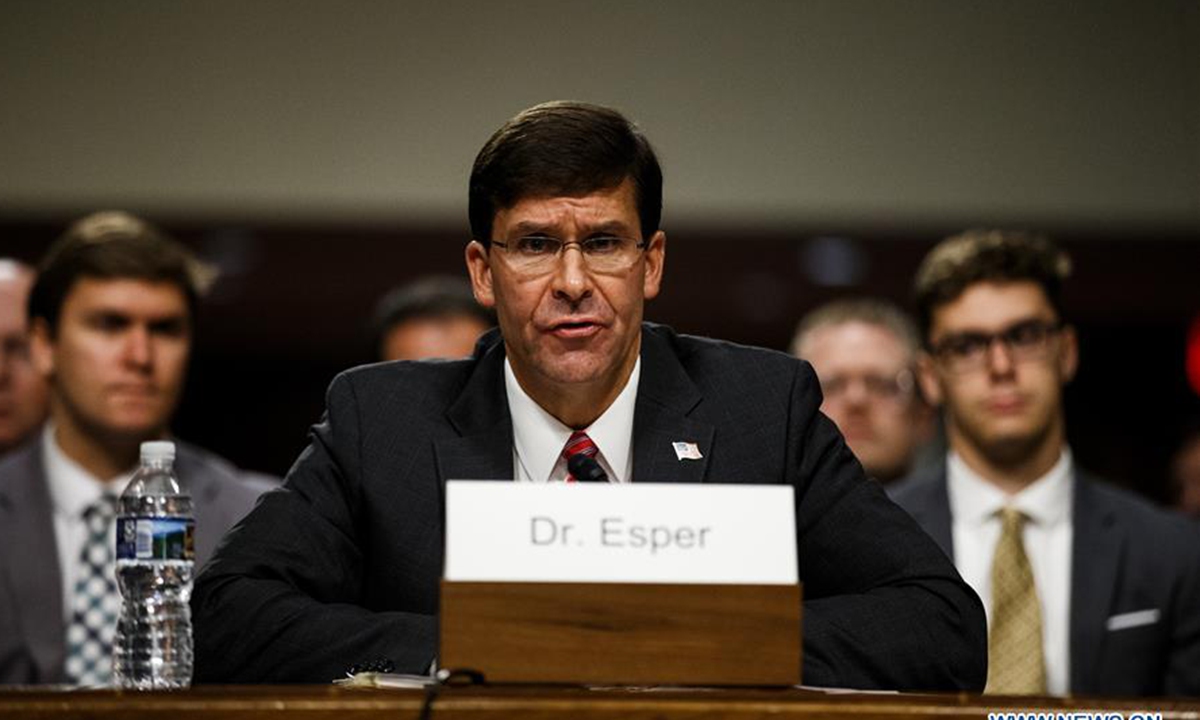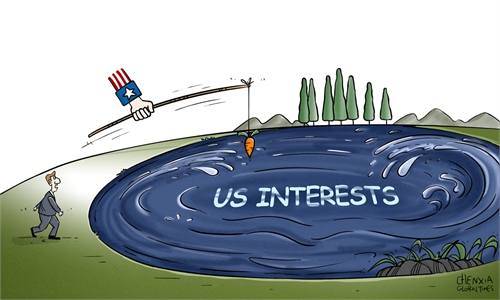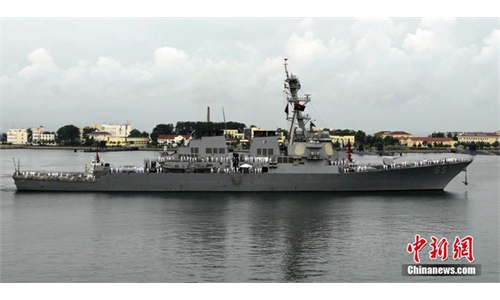Trump’s defense chief visits Taiwan for further arms lobbying, with prospect of fat ‘welcoming fees’
Supportive tour a ‘sure bet’ for Esper given DPP’s ‘generosity'

Mark Esper Photo: Xinhua
Mark Esper, the former US defense secretary under the Trump administration, landed on the island of Taiwan on Monday, three days after the US government approved a proposed $108 million arms sales of technical and equipment support to the Taiwan authorities, the fifth of its kind under the Biden administration.Chinese mainland experts said despite having been out of the US government for about two years, Esper, who has close ties to the US military-industrial complex, will push for the arms package that Republicans want to see on the island of Taiwan. Esper could also further expand his political clout and obtain generous financial support from the Taiwan authorities.
Heading a three-member Atlantic Council delegation, Trump's defense chief is joined by Barry Pavel, senior vice president and director of the US-based think tank Atlantic Council, and Stefano Stefanini, former permanent representative of Italy to NATO, Taiwan-based media reported.
During his visit from Monday through Thursday, Esper is scheduled to meet with Taiwan regional leader Tsai Ing-wen on Tuesday, local media said. The delegation will reportedly interact with think tanks and businesses on the island and exchange views on the security and economic situation in the Indo-Pacific region.
Taiwan media said it's the fourth Taiwan visit by the Atlantic Council since Tsai took office in 2016, following previous trips in 2016, 2017 and 2018. Analysts said given that the Washington-based think tank is traditionally more about policy research on US-Europe collaboration, China should be wary of the US efforts to push its allies in Europe or NATO to focus on defense and security in the Taiwan Straits.
Dubbed "Taiwan's loyal friend" by the island's external affairs authority, Esper has intensified his anti-China stance since leaving office. At a think tank event in June, he hyped the "China threat" and questioned the efficacy of the US' "one-China policy."
Chinese Foreign Ministry spokesperson Wang Wenbin expressed strong opposition to the latest US arms sales to Taiwan island.
The US arms sales to China's Taiwan region seriously violate the one-China principle and the stipulations of the three China-US joint communiqués, especially the August 17 Communiqué of 1982. The sales gravely undermine China's sovereignty and security interests, and severely harm China-US relations and peace and stability across the Taiwan Straits, Wang said on Monday.
We urge the US side to abide by the one-China principle and the stipulations of the three China-US joint communiqués, revoke the above-mentioned arms sales plan, stop arms sales to and military contact with Taiwan and stop creating factors that could lead to tensions in the Taiwan Straits. China will continue to take resolute and strong measures to firmly defend its sovereignty and security interests, Wang said.
Chinese Ministry of National Defense on Monday also issued a stern warining to the US over the provocative move, saying that the People's Liberation Army will take resolute and strong measures to firmly defend China's sovereignty and security interests.
Diao Daming, an associate professor at the Renmin University of China in Beijing, told the Global Times on Monday that Esper has close ties to US military-industrial interests and to Republican elites, so his Taiwan trip could be seen as an attempt to make further arms sales.
Before becoming US defense secretary, Esper served as US secretary of the army from 2017 to 2019. A West Point graduate and a top lobbyist, Esper served as deputy assistant secretary of defense for negotiations policy in George W. Bush's administration from 2002 to 2004. In July 2010, he was hired as vice president of government relations at defense contractor Raytheon.
Analysts speculated that Esper's visit may reflect, to some extent, the divisions between US military interests and the Biden administration over arms sales to the island of Taiwan, given that sales to the region during the Trump administration were more about "heavy and large" weapons, while the Biden administration's sales have so far focused more on system maintenance and around the concept of building up asymmetric capacity.
Esper is not a member of the Biden administration, and his remarks will be a more direct representation of the ideas of the US military-industrial complex and, to some extent, of the Republican Party, Diao said. "These ideas may be different from the White House's, as selling the big stuff is always more profitable for arms dealers," he noted.
The US House of Representatives on Thursday passed an annual defense policy bill for fiscal 2023, approving a $37 billion boost to the budget proposed by President Joe Biden in March. US lawmakers cited "threats" posed by Russia and China for the budget increase, which also contained several Taiwan-related bills with the aim of reinforcing relations.
"The communications Esper makes on his trip could then be reflected at the legislative level by Republicans… It is possible that Republicans will add new amendments about arms sales to Taiwan to the bill, given it still has to be passed in the Senate," Diao said.
Another analyst who requested not to be named, told the Global Times on Monday that despite Esper's distance from the core of US politics, visiting Taiwan is a sure bet for him.
Esper could retain his personal influence through contacts with top officials from the Taiwan authorities, the analyst said.
In addition to enjoying a high-level tour reception, Esper could also earn tens of thousands of dollars, based on the appearance fee that his ex-colleague and former US secretary of state Mike Pompeo earned in Taiwan in March, they said.
According to Taiwan media, Pompeo's appearance fee was $150,000, while other fees including flight tickets and reception came to about $184,000.




